Soccer Players: The Negative Impact of Drinking Alcohol for Soccer Players
As the drinking age is 21, alcohol should not be an issue on a college campus, but we all know some co-eds drink. What is the impact of drinking for a soccer player?
If you are a serious soccer player, then you know you have given up partying for performance … but here is why that decision is so critical for your game.
It is really simple. Alcohol dehydrates the body. If you are a soccer player or an elite athlete, and your body us dehydrated, you can be at a greater risk of injury — including muscle pulls and muscle strains that can leave you on the sideline.
The NCAA has information on the effects on athletic performance and has rules regulating any alcohol consumption prior to practice and games.
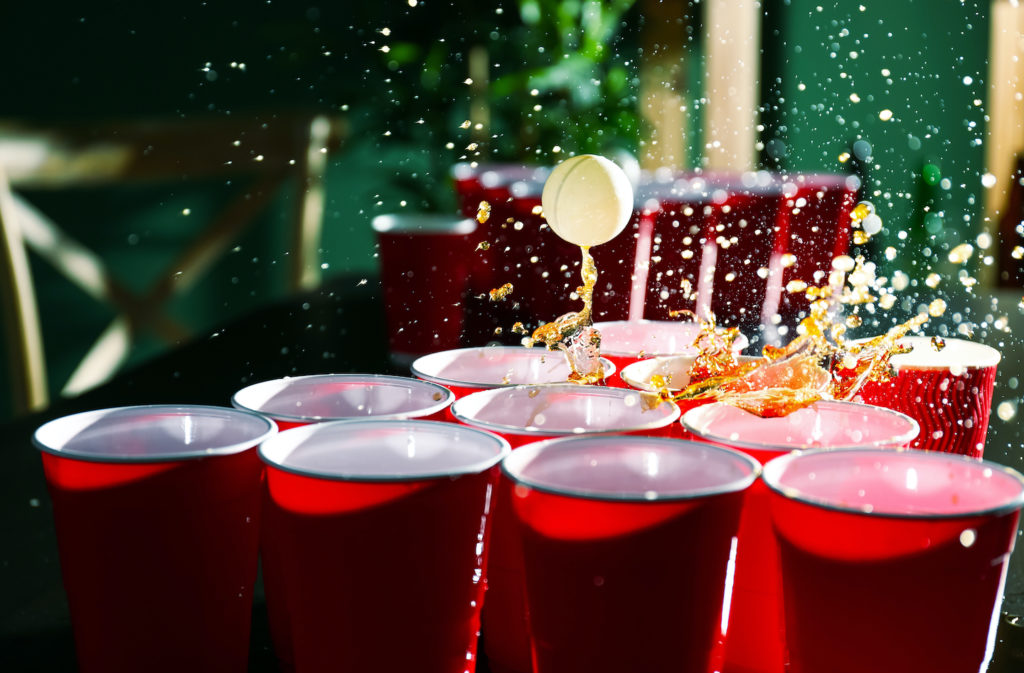
Here is SoccerToday’s nutrition columnist Nancy Clark on the important topic of alcohol in sports and specifically the impact for players.
Clark’s article on this topic: The Athlete’s Kitchen: Alcohol & Athletes is published on the NCAA site.
Late-night partying that contributes to sleep deprivation (as well as a hangover) can easily ruin the next day’s performance.
To address what is known—and not known—about the impact of alcohol on athletic performance, members of Professionals In Nutrition for Exercise and Sport (PINES) organized a session at the American College of Sports Medicine (ACSM) Annual Meeting.
Respected researchers answered questions runners commonly ask regarding alcohol and athletic performance.
Here’s what you might want to know.
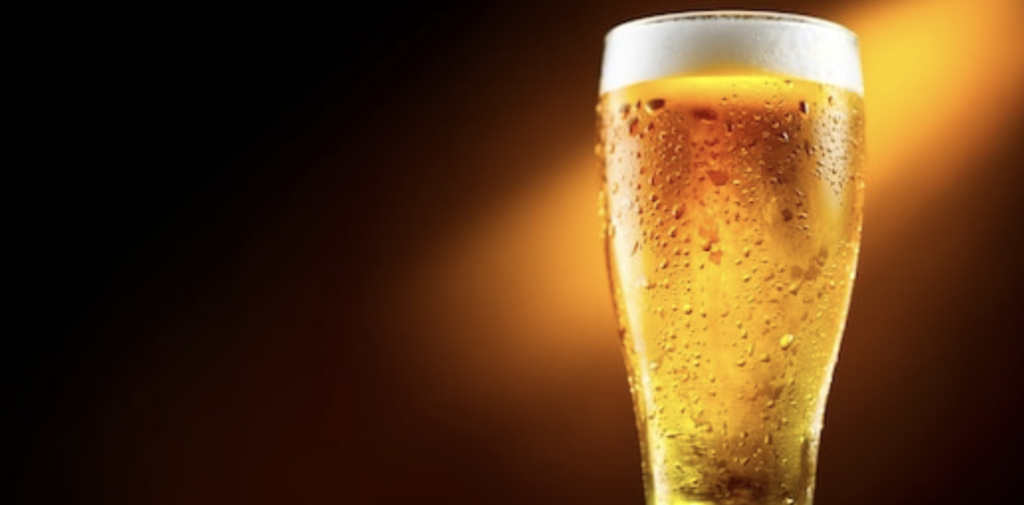
Soccer Players: What effect does a big night of drinking have on soccer performance the next day?
Dr. Louise Burke, Head of Sports Nutrition for the Australian Institute of Sport, reported heavy drinking is common after many athletic events.
For example, research with rugby players suggests they consumed an average of 13 units* of alcohol post-game, with a range of 1 to 30 units (<1 to 22 beers).
No surprise, this high alcohol intake impaired their performance.
Other studies have reported athletes were less able to do repeat sprints (think soccer, hockey) and jumps (volleyball, basketball).
* One unit equates to 10 grams of alcohol; 5 ounces (150-ml) wine equates to 1.5 units; a 30-ml nip of hard (40%) alcohol is 1 unit; a 375 ml (13 oz.) bottle of 4.8% alcohol beer is 1.4 units.)
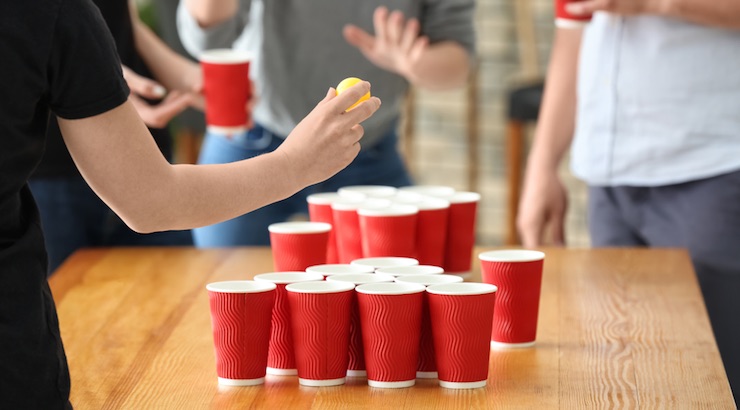
Poor Source of Carbs
Alcohol is a poor source of carbohydrates. You can get loaded with beer, but your muscles will not get carbo-loaded.
A 12-ounce can of beer has only 14 grams of carbohydrate, as compared to 40 grams in a can of soda.
And, Alcohol calories add up quickly.
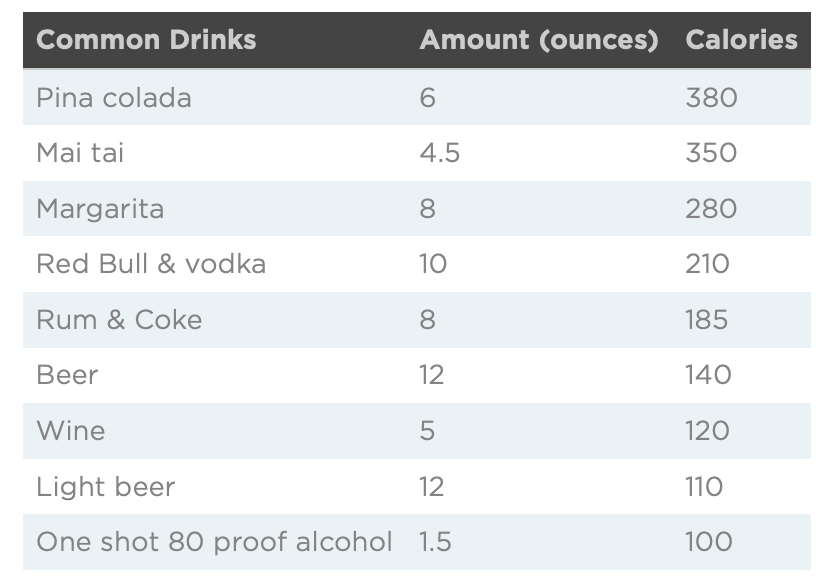
Alcohol stimulates the appetite. People who drink moderately tend to consume alcohol calories on top of their regular caloric intake. These excess calories accumulate as body fat. If you want to maintain a lean machine, abstaining is more slimming than imbibing.
Alcohol in Sport: How Bad Is It for Soccer Players?
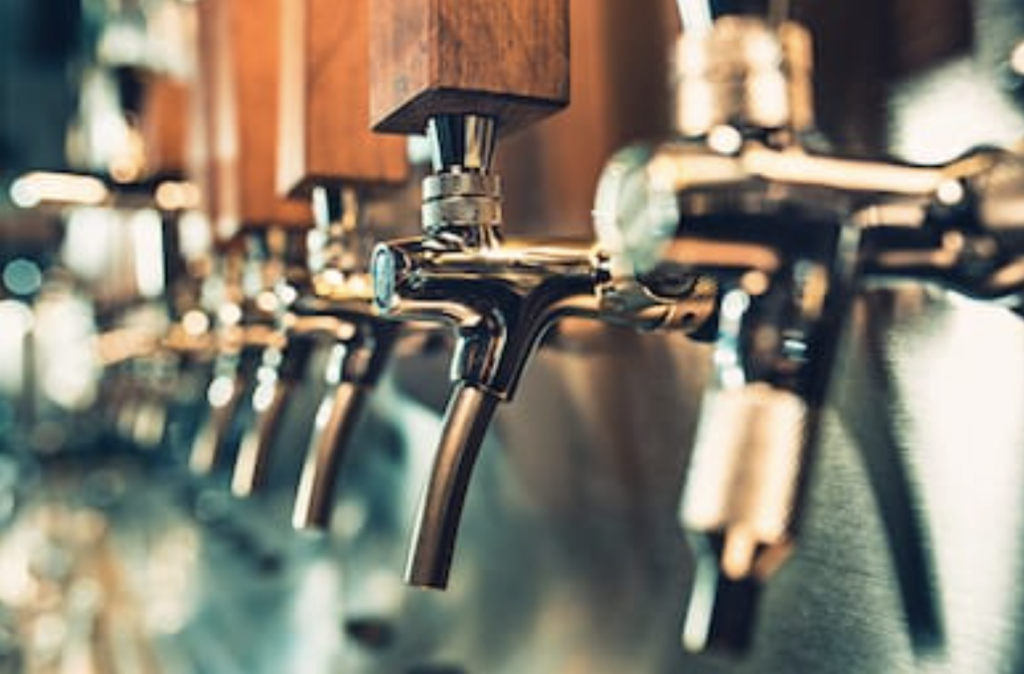
Soccer Players: What does heavy post-exercise alcohol intake do to rehydration and refueling goals?
Dr. Ron Maughan, visiting professor at St. Andrew’s University, acknowledged a modest amount of alcohol, consumed along with a balanced meal, is unlikely to have a negative impact.
Alcohol impairs glycogen resynthesis only to a small extent. But in the real world of sports drinking, soccer players who drink tend to make high-fat food choices—and that can hinder optimal muscle glycogen replenishment a lot! Eating a good meal before starting to drink alcohol is probably a good idea.
Alcohol is a diuretic
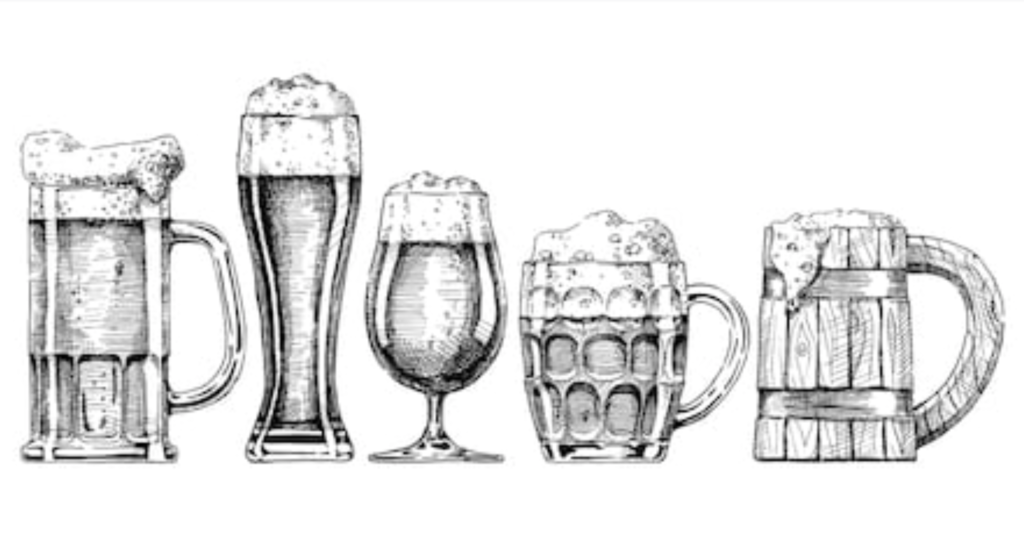
One unit (10 g) of alcohol stimulates the formation of 100 ml of excess urine. However, the alcohol content of beer is low—and beer has a lot of water. Dehydrated players can effectively rehydrate with beer.
Whiskey and other spirits, however, cause more water loss than they contribute.
What impact does pre-exercise alcohol have on heat tolerance and dehydration during exercise?
According to research presented by Dr. Doug Casa, a professor at the University of Connecticut, pre-exercise alcohol contributes to slower running across a wide range of distances.
The common denominator among those heat-stricken runners was pre-event alcohol consumption. Think before your drink excessive alcohol before an event—especially in the summer heat!

Soccer Players: What does heavy alcohol after exercise do to weight and body-fat goals?
Dr. Barry Braun, a professor at Colorado State University, said for most athletes, alcohol is a source of unwanted calories.
For example, just five Heineken Light Beers add 500 calories—and that’s not counting the pepperoni pizza or nachos that you can easily overeat when alcohol lowers your inhibitions.
Soccer Players: What effect does heavy post-exercise alcohol intake have on muscle recovery?
Dr. Stuart Phillips, a professor at McMaster University, noted bad things happen during runs and good things happen during recovery when you rehydrate, refuel, and repair by consuming protein your muscles.
Adding alcohol to the recovery diet slows down muscle repair, protein synthesis, and adaptation processes. Hence, alcohol intake is not on Phillips’ list of best recovery practices for athletes to follow! Yet, he doesn’t begrudge anyone a glass or two of wine … at the appropriate time and if they are able to legally drink. Moderation is the keyword for everyone.
Abstinance is the right approach, if you want to be your best on the pitch.
Soccer Players: What does heavy alcohol intake do to sleep?
Dr. Shona Halson, the Senior Physiologist at the Australia Institute of Sport, reports that alcohol might help you fall asleep faster, but it disrupts your sleep cycles so you get less restorative sleep.
Alcohol also alters body temperature, which can affect how well you sleep.
It also aggravates snoring due to relaxed muscles and a lower breathing rate, so your bed partner also gets sleep deprived. Plus, you have to get up to go to the bathroom more often in the middle of the night. None of this will enhance your athletic performance.

Soccer Players: How does heavy alcohol intake after exercise impact muscles?
Matthew Barnes of Massey University in New Zealand noted when athletes perform an exercise to which they are accustomed, alcohol’s negative effects are less pronounced compared to doing a new form of exercise.
For example, after getting battered up in a game, a 200-lb rugby player who is experienced with both sport and drinking could consume perhaps 20 standard drinks and still effectively perform a vertical jump!
As for inflammation, runners who are conditioned to both their sport and to drinking alcohol do not have a significant inflammatory response.
But, if you are a weekend warrior, watch out…
Soccer Players: Why isn’t alcohol & performance better researched?
Indeed, more research would be very helpful, but few research institutions approve studies that involve alcohol + heat.
The alternative is to study athletes who have already been drinking.
For example, they can track the number of triathletes in the medical tent who consumed alcohol the night before.
Soccer Players – Here is Sound Advice:
When asked, Is beer good for runners? running legend Jim Fixx‘s answer was “Sure if it’s the other guy drinking it.”
This obviously works for soccer the same way.
If you stay sober, you can take advantage of other athletes’ poor judgment!

SIDEBAR: Nutritional and medical advice changes with new discoveries and interpretations. Always check with your medical provider and/or nutritionist for what is best for you and your family. And research and read information on nutrition.
Nancy Clark, MS, RD counsels both casual and competitive athletes at her office in Newton, MA (617-795-1875). Her best selling Sports Nutrition Guidebook and Food Guide for Soccer offer additional information. They are available at www.NancyClarkRD.com. Her online workshop, www.NutritionSportsExerciseCEUs.com is popular with health professionals and athletes alike.





